 Fanconi anemia is a rare, cancer-prone disease with mutations in 22 genes. The primary defect results in altered DNA repair mechanisms that fuel a severe proinflammatory condition in the bone marrow, leading to cellular depletion of the hematopoietic system and eventually to bone marrow failure. During the past three decades, a plethora of dysfunctions have been highlighted in the Fanconi anemia phenotype, but recent research allows us to glimpse an even more complex scenario where defective lipid metabolism could have important consequences in hematopoietic stem cell differentiation. The full article you can find here.
Fanconi anemia is a rare, cancer-prone disease with mutations in 22 genes. The primary defect results in altered DNA repair mechanisms that fuel a severe proinflammatory condition in the bone marrow, leading to cellular depletion of the hematopoietic system and eventually to bone marrow failure. During the past three decades, a plethora of dysfunctions have been highlighted in the Fanconi anemia phenotype, but recent research allows us to glimpse an even more complex scenario where defective lipid metabolism could have important consequences in hematopoietic stem cell differentiation. The full article you can find here.
informer
 Everywhere in Bulgaria, the Rare Disease Day will be marked with raising hands and releasing balloons as a sign of solidarity with the problems of the people affected by rare diseases. On 28th of February at 13:00 we all together will show our empathy in the central part of the cities, honoring the day.
Everywhere in Bulgaria, the Rare Disease Day will be marked with raising hands and releasing balloons as a sign of solidarity with the problems of the people affected by rare diseases. On 28th of February at 13:00 we all together will show our empathy in the central part of the cities, honoring the day.
In Rousse – in front of the Rousse University ‘Angel Kanchev’, 2nd housing on ‘Studentska’ 8 street.
In Haskovo – in the Affiliate Haskovo of Trakia University on ‘Saedinenie’ 48 boulevard.
In Kyustendil – in front of the Municipal Polyclinic on ‘Yavor’ 6 street.
In Velingrad – in front of Multi-profile Hospital for Active Medical Treatment ‘Zdrave’ on ‘Saedinenie’ 49 boulevard.
In Rakitovo – in front of church ‘Sveta Nedelya’.
In Svilengrad – in front of Kinder Garden ‘Detstvo’.
In Sandanski – on ‘Bulgaria’ square.
In Radomir – on ‘Batenberg’ square.
In Silistra – on ‘Svoboda’ square.
In Vratsa – on ‘Hristo Botev’ square.
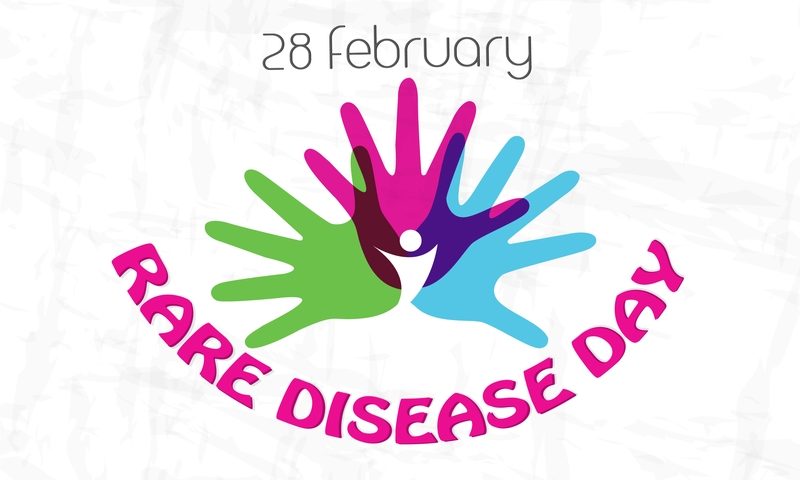 The Rare Disease Day is commemorated for 7th consecutive year in Sliven under the leadership of the president of the National Mucopolysaccharidosis Association – Desislava Hristakeva. The event is supported by the institutions in the face of the mayor of Sliven Mr. S. Radev and Deputy Mayor from the health care sector Pepa Tschilikova. With the kind participation of volunteers from the Red Cross, representatives of Association of thalassemia patients, students from Medical University of Varna – Sliven Affiliate, as well as the Principal of the Affiliate – assoc. prof. I. Dimitrov, md and the Deputy Principal assoc. prof. I. Aleksandrov, md, the children from the Day Care Center for Children with Disabilities ‘Sveti Stiliyan Detepazitel’. At 12:00 it is organized an informational campaign and at 13:00 patients, their families and friends will raise hands and will release balloons as a sign of solidarity with the problems of the people affected by rare diseases.
The Rare Disease Day is commemorated for 7th consecutive year in Sliven under the leadership of the president of the National Mucopolysaccharidosis Association – Desislava Hristakeva. The event is supported by the institutions in the face of the mayor of Sliven Mr. S. Radev and Deputy Mayor from the health care sector Pepa Tschilikova. With the kind participation of volunteers from the Red Cross, representatives of Association of thalassemia patients, students from Medical University of Varna – Sliven Affiliate, as well as the Principal of the Affiliate – assoc. prof. I. Dimitrov, md and the Deputy Principal assoc. prof. I. Aleksandrov, md, the children from the Day Care Center for Children with Disabilities ‘Sveti Stiliyan Detepazitel’. At 12:00 it is organized an informational campaign and at 13:00 patients, their families and friends will raise hands and will release balloons as a sign of solidarity with the problems of the people affected by rare diseases.
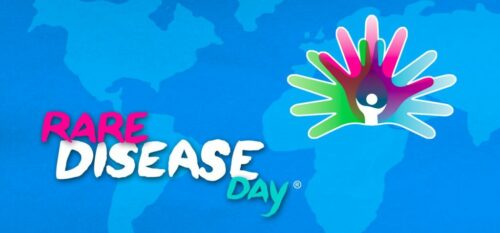 On 28th of February at 11:00 in Shumen a prayer will be served for all people with rare diseases in front of the chapel ‘Sveti Panteleymon’ in Multi-profile Hospital for Active Medical Treatment Shumen. Then with the participation of the students from Shumen Affiliate of Medical University of Varna, leaflets will be handed out. At 13:00 the Rare Disease Day will be marked with raising hands and releasing balloons as a sign of solidarity with the problems of the people affected by rare diseases.
On 28th of February at 11:00 in Shumen a prayer will be served for all people with rare diseases in front of the chapel ‘Sveti Panteleymon’ in Multi-profile Hospital for Active Medical Treatment Shumen. Then with the participation of the students from Shumen Affiliate of Medical University of Varna, leaflets will be handed out. At 13:00 the Rare Disease Day will be marked with raising hands and releasing balloons as a sign of solidarity with the problems of the people affected by rare diseases.
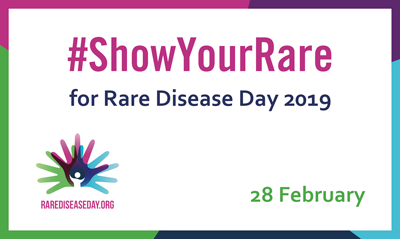 On 28th of February at 13:00 on ‘Vuzrazhdane’ square in Pleven the Rare Disease Day will be marked with raising hands and releasing balloons as a sign of solidarity with the problems of the people affected by rare diseases. And on 3rd of March at 15:00 will be served a prayer in ‘Sveti Georgi Pobedonosets’ church.
On 28th of February at 13:00 on ‘Vuzrazhdane’ square in Pleven the Rare Disease Day will be marked with raising hands and releasing balloons as a sign of solidarity with the problems of the people affected by rare diseases. And on 3rd of March at 15:00 will be served a prayer in ‘Sveti Georgi Pobedonosets’ church.
 On 23rd of February in Stara Zagora is organized Teddy Bear Hospital in Kalitinovo village in ‘The house of family and community’. On 24th in Mall Galleria is organized a face painting and an informational campaign. And on 28th of February at 13:00 in front of the municipality, as a sign of solidarity with the problems of the people affected by rare diseases, the attendees will mark the day with raising hands and releasing balloons.
On 23rd of February in Stara Zagora is organized Teddy Bear Hospital in Kalitinovo village in ‘The house of family and community’. On 24th in Mall Galleria is organized a face painting and an informational campaign. And on 28th of February at 13:00 in front of the municipality, as a sign of solidarity with the problems of the people affected by rare diseases, the attendees will mark the day with raising hands and releasing balloons.
 On 28th of February at 10:00 in Plovdiv a prayer will be served by Metropolitan Nikolai in the Plovdiv Metropolis and after that in the Medical University of Plovdiv, a tree will be decorated with the names of different kinds of rare diseases. In front of the municipality on ‘Stefan Stambolov’ square, at 13:00, the Rare Disease day will be marked with raising hands and releasing balloons as a sign of solidarity with the problems of the people affected by rare diseases.
On 28th of February at 10:00 in Plovdiv a prayer will be served by Metropolitan Nikolai in the Plovdiv Metropolis and after that in the Medical University of Plovdiv, a tree will be decorated with the names of different kinds of rare diseases. In front of the municipality on ‘Stefan Stambolov’ square, at 13:00, the Rare Disease day will be marked with raising hands and releasing balloons as a sign of solidarity with the problems of the people affected by rare diseases.
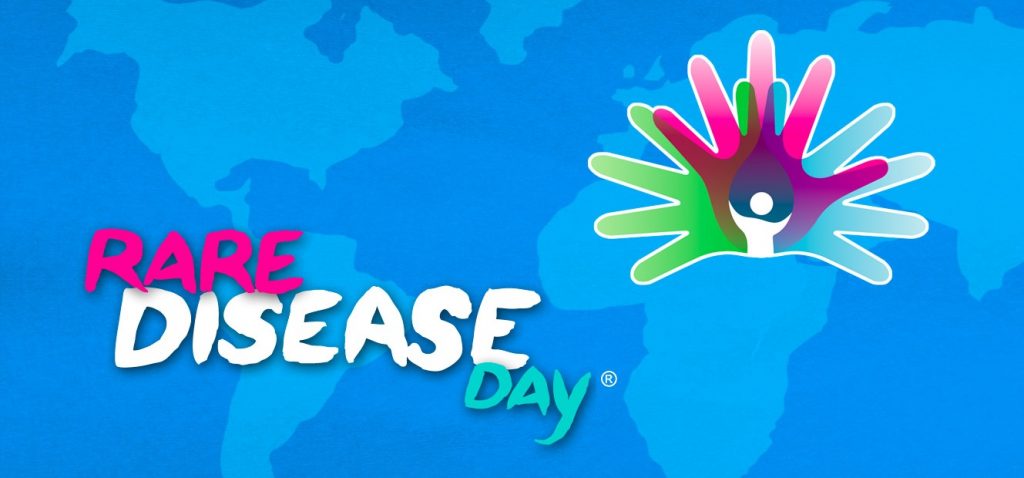 On 28th of February at 11:30 in Sofia in the National Assembly will take place a solemn ceremony honoring the Rare Disease Day 2019. At 13:00 this day will be marked with raising hands and releasing balloons as a sign of solidarity with the problems of the people affected by rare diseases.
On 28th of February at 11:30 in Sofia in the National Assembly will take place a solemn ceremony honoring the Rare Disease Day 2019. At 13:00 this day will be marked with raising hands and releasing balloons as a sign of solidarity with the problems of the people affected by rare diseases.
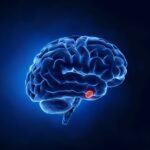 Cushing’s disease is the most common cause of endogenous hypercortisolemia. It is a rare disease of unknown etiology that is prone to relapse and damaging to quality of life, even in remission. A significant proportion of patients are not cured by primary surgical treatment, and adjuvant radiotherapy has become an increasingly unattractive proposition for clinicians who wish to spare their patients hypopituitarism and other potential complications. The few effective pharmacological options that are available currently tend to have dose-limiting side effects and new alternatives that are safer and more effective than the adrenal cortical enzyme inhibitors and adrenolytic drugs would be most welcome. This article discusses preliminary efficacy data for several potential new groups of drugs. The full article you can find here.
Cushing’s disease is the most common cause of endogenous hypercortisolemia. It is a rare disease of unknown etiology that is prone to relapse and damaging to quality of life, even in remission. A significant proportion of patients are not cured by primary surgical treatment, and adjuvant radiotherapy has become an increasingly unattractive proposition for clinicians who wish to spare their patients hypopituitarism and other potential complications. The few effective pharmacological options that are available currently tend to have dose-limiting side effects and new alternatives that are safer and more effective than the adrenal cortical enzyme inhibitors and adrenolytic drugs would be most welcome. This article discusses preliminary efficacy data for several potential new groups of drugs. The full article you can find here.
 Amelogenesis imperfecta (AI) is a hereditary developmental disorder affecting the enamel of teeth. Affected patients present with tooth hypersensitivity, rapid tooth wear, or fractures of enamel as well as alterations in color and shape, all of which compromise esthetic appearance and masticatory function. The aim of this study was to explore experiences and the impact on daily life of being a parent to a child with severe forms of amelogenesis imperfecta. Parents of children and adolescents with AI participated in an interview with a psychologist. The transcribed interviews were analyzed using thematic analysis. The parents talked about several concerns about having a child with AI. Four main themes emerged from the interviews: Feelings associated with passing on a hereditary disorder included the subtheme of guilt/shame; knowledge decreases stress included knowledge about diagnosis in the family and support from dental health care professionals; Unfamiliarity with diagnosis included missed diagnosis, fear of not getting correct treatment, and insufficient pain control; finally, the subtheme Psychosocial stress included fear of child being bullied and emergency dental visits. The full article you can find here.
Amelogenesis imperfecta (AI) is a hereditary developmental disorder affecting the enamel of teeth. Affected patients present with tooth hypersensitivity, rapid tooth wear, or fractures of enamel as well as alterations in color and shape, all of which compromise esthetic appearance and masticatory function. The aim of this study was to explore experiences and the impact on daily life of being a parent to a child with severe forms of amelogenesis imperfecta. Parents of children and adolescents with AI participated in an interview with a psychologist. The transcribed interviews were analyzed using thematic analysis. The parents talked about several concerns about having a child with AI. Four main themes emerged from the interviews: Feelings associated with passing on a hereditary disorder included the subtheme of guilt/shame; knowledge decreases stress included knowledge about diagnosis in the family and support from dental health care professionals; Unfamiliarity with diagnosis included missed diagnosis, fear of not getting correct treatment, and insufficient pain control; finally, the subtheme Psychosocial stress included fear of child being bullied and emergency dental visits. The full article you can find here.
